Human Circular Tourism as the Tourism of Tomorrow: The Role of Travellers in Achieving a More Sustainable and Circular Tourism
Abstract
1. Introduction
2. Theoretical Background: Tourism and COVID-19
3. Literature Review
The Contribution of the Tourism Sector to the Sustainable Development Goals (SDGs)
- -
- Goal 8, “Decent work and economic growth” (in particular, target 8.9). Tourism aims to create jobs and promote local culture and products through the elaboration and implementation of policies promoting sustainable tourism.
- -
- Goal 12, “Responsible consumption and production” (in particular, target 12.b). This goal refers to identifying development models and strategies for implementing sustainable tourism. In particular, it refers to the development and implementation of tools to monitor sustainable development impacts from sustainable tourism that create jobs and promote local culture and products.
- -
- Goal 14, “Life below water” (in particular, target 14.7). This is related to the conservation and preservation of fragile marine ecosystems, in particular for Small Island Developing States (SIDS) and LDCs (Least Development Countries), as coastal and maritime tourism are the biggest segments in this sector. The sustainable management of fisheries, aquaculture, and tourism will be a useful way to promote a blue economy.
4. Materials and Methods
4.1. Human Circular Tourism (HCT) for Achieving a More Sustainable Future
4.2. Results of the Survey
4.2.1. Be a “Sustainable” Tourist
4.2.2. Be an “Active and Responsible” Traveller
4.2.3. Tourism and COVID-19
5. Discussion
6. Conclusions
Author Contributions
Funding
Institutional Review Board Statement
Informed Consent Statement
Data Availability Statement
Conflicts of Interest
References
- Fusco Girard, L.; Bifulco, M. Virus e Clima, si va Verso una Economia e una Città Circolare? 2020, p. 1. Available online: https://www.ilmattino.it/AMP/pay/virus_e_clima_si_va_verso_una_economia_e_una_citta_circolare-5182380.html (accessed on 3 August 2022).
- Behsudi, A. Finance & Development; International Monetary Fund: Washington, DC, USA, 2020; pp. 36–39. [Google Scholar]
- Yeh, S.S. Tourism recovery strategy against COVID-19 pandemic. Tour. Recreat. Res. 2021, 46, 188–194. [Google Scholar] [CrossRef]
- UNWTO. Impact assessment of the COVID-19 outbreak on international tourism. UGC Care Gr./List. J. 2020, 10, 148–159. [Google Scholar]
- UNWTO. Secretary-General Zurab Pololikashvili Secretary-General’s Policy Brief on Tourism and COVID-19; UNWTO: Madrid, Spain, 2021. [Google Scholar]
- International Labour Organization Technical Meeting on COVID-19 and Sustainable Recovery in the Tourism Sector; International Labour Organization: Geneva, Switzerland, 2022.
- WTTC. Travel & Tourism Economic Impact—World Travel & Tourism Council (WTTC); WTTC: London, UK, 2021. [Google Scholar]
- Statista Research Department Travel and Tourism: Share of Global GDP 2000–2019. Available online: https://www.statista.com/statistics/1099933/travel-and-tourism-share-of-gdp/ (accessed on 3 August 2022).
- UNWTO. Sustainable Tourism for Development Guidebook—Enhancing Capacities for Sustainable Tourism for Development in Developing Countries; World Tourism Organization (UNWTO): Madrid, Spain, 2013; ISBN 9789284415496. [Google Scholar]
- Einarsson, S.; Sorin, F. Circular Economy in Travel and Tourism: A Conceptual Framework for a Sustainable, Resilient and Future Proof Industry Transition. CE360 Alliance. 2020. Available online: https://circulareconomy.europa.eu/platform/sites/default/files/circular-economy-in-travel-and-tourism.pdf (accessed on 3 August 2022).
- Fusco Girard, L.; Nocca, F. From linear to circular tourism. Aestimum 2017, 70, 4219106. [Google Scholar] [CrossRef]
- Sunlu, U. Environmental impacts of tourism Local resources and global trades: Environments and agriculture in the Mediterranean region Bari: CIHEAM Options Méditerranéennes: Série A Environmental impacts of tourism. Séminaires Méditerranéens 2003, 57, 263–270. [Google Scholar]
- Lenzen, M.; Sun, Y.Y.; Faturay, F.; Ting, Y.P.; Geschke, A.; Malik, A. The carbon footprint of global tourism. Nat. Clim. Chang. 2018, 8, 522–528. [Google Scholar] [CrossRef]
- World Tourism Organization (UNWTO); International Transport Forum (ITF). Transport-Related CO2 Emissions of the Tourism Sector—Modelling Results; World Tourism Organization (UNWTO): Madrid, Spain, 2019; ISBN 9789284416660. [Google Scholar]
- World Tourism Organization; United Nations Environment Programme. Climate Change and Tourism—Responding to Global Challenges; World Tourism Organization (UNWTO): Madrid, Spain, 2008; ISBN 9789284412341. [Google Scholar]
- UNFCCC. Paris Agreement; UNFCCC: Paris, France, 2015. [Google Scholar]
- Friedlingstein, P.; Jones, M.W.; O’Sullivan, M.; Andrew, R.M.; Bakker, D.C.E.; Hauck, J.; Le Quéré, C.; Peters, G.P.; Peters, W.; Pongratz, J.; et al. Global Carbon Budget 2021. Earth Syst. Sci. Data 2022, 14, 1917–2005. [Google Scholar] [CrossRef]
- Ritchie, H. Climate Change and Flying: What Share of Global CO2 Emissions Come from Aviation? Available online: https://ourworldindata.org/CO2-emissions-from-aviation (accessed on 3 August 2022).
- Halleux, V. Sustainable Tourism: The Environmental Dimension. European Parliament Research Service. 2017. Available online: https://www.europarl.europa.eu/thinktank/en/document/EPRS_BRI(2017)599327 (accessed on 3 August 2022).
- UNWTO. Tourism Towards 2030/Global Overview—Advance edition presented at UNWTO 19th General Assembly—10 October 2011; UNWTO: Madrid, Spain, 2011. [Google Scholar]
- UNWTO. International Tourism Highlights, 2019 ed.; World Tourism Organization (UNWTO): Madrid, Spain, 2019; ISBN 9789284421152. [Google Scholar]
- UNWTO. International Tourism Highlights, 2020 ed.; World Tourism Organization (UNWTO): Madrid, Spain, 2021; ISBN 9789284422456. [Google Scholar]
- UNWTO. World Tourism Barometer and Statistical Annex, November; World Tourism Organization (UNWTO): Madrid, Spain, 2021; Volume 19. [Google Scholar]
- UNWTO. World Tourism Barometer and Statistical Annex, July; World Tourism Organization (UNWTO): Madrid, Spain, 2022; Volume 20. [Google Scholar]
- Johannesen, A.B.; Skonhoft, A. Tourism, poaching and wildlife conservation: What can integrated conservation and development projects accomplish? Resour. Energy Econ. 2005, 27, 208–226. [Google Scholar] [CrossRef][Green Version]
- Rahman, M.S.; Alam, M.A.; Salekin, S.; Belal, M.A.H.; Rahman, M.S. The COVID-19 pandemic: A threat to forest and wildlife conservation in Bangladesh? Trees For. People 2021, 5, 100119. [Google Scholar] [CrossRef]
- United Nations. Policy Brief-COVID-19 and Transforming Tourism; United Nations: San Francisco, CA, USA, 2019. [Google Scholar]
- Hall, C.M. Constructing sustainable tourism development: The 2030 agenda and the managerial ecology of sustainable tourism. J. Sustain. Tour. 2019, 27, 1044–1060. [Google Scholar] [CrossRef]
- Rasoolimanesh, S.M.; Ramakrishna, S.; Hall, C.M.; Esfandiar, K.; Seyfi, S. A systematic scoping review of sustainable tourism indicators in relation to the sustainable development goals. J. Sustain. Tour. 2020. [Google Scholar] [CrossRef]
- UNWTO. Tourism and the Sustainable Development Goals; World Tourism Organization (UNWTO): Madrid, Spain, 2015; ISBN 9789284417254. [Google Scholar]
- UNDP. Tourism and the Sustainable Development Goals—Journey to 2030; World Tourism Organization (UNWTO): Madrid, Spain, 2017; ISBN 9789284419401. [Google Scholar]
- United Nations. 70/1. Transforming Our World: The 2030 Agenda for Sustainable Development Transforming Our World: The 2030 Agenda for Sustainable Development Preamble; United Nations: San Francisco, CA, USA, 2015. [Google Scholar]
- United Nations. Take Action for the Sustainable Development Goals; United Nations: San Francisco, CA, USA, 2020. [Google Scholar]
- Nanda, P.V. The journey from the Millennium Development Goals to the Sustainable Development Goals. Denver J. Int. Law Policy 2016, 44, 389–412. [Google Scholar]
- Mearns, K.F. Lessons from the application of sustainability indicators to community-based ecotourism ventures in Southern Africa. African J. Bus. Manag. 2012, 6, 7851–7860. [Google Scholar]
- Scheyvens, R. Exploring the tourism-poverty nexus. Curr. Issues Tour. 2007, 10, 231–254. [Google Scholar] [CrossRef]
- Zapata, M.J.; Hall, C.M.; Lindo, P.; Vanderschaeghe, M. Can community-based tourism contribute to development and poverty alleviation? Lessons from nicaragua. Curr. Issues Tour. 2011, 14, 725–749. [Google Scholar] [CrossRef]
- Phi, G.T.; Whitford, M.; Reid, S. What’s in the black box? Evaluating anti-poverty tourism interventions utilizing theory of change. Curr. Issues Tour. 2018, 21, 1930–1945. [Google Scholar] [CrossRef]
- Qureshi, M.I.; Hassan, M.A.; Hishan, S.S.; Rasli, A.M.; Zaman, K. Dynamic linkages between sustainable tourism, energy, health and wealth: Evidence from top 80 international tourist destination cities in 37 countries. J. Clean. Prod. 2017, 158, 143–155. [Google Scholar] [CrossRef]
- Jaeger, L. Goal 3: Good Health and Well-Being. Ensure Healthy Lives and Promote Well-Being for All at All Ages. Available online: http://www.transforming-tourism.org/goal-3-good-health-and-well-being.html (accessed on 2 August 2022).
- Padilla, M.B.; Guilamo-Ramos, V.; Bouris, A.; Reyes, A.M. HIV/AIDS and tourism in the Caribbean: An ecological systems perspective. Am. J. Public Health 2010, 100, 70–77. [Google Scholar] [CrossRef]
- Peña-Sánchez, A.R.; Ruiz-Chico, J.; Jiménez-García, M.; López-Sánchez, J.A. Tourism and the SDGs: An analysis of economic growth, decent employment, and gender equality in the European Union (2009–2018). Sustainability 2020, 12, 5480. [Google Scholar] [CrossRef]
- Sgambati, M.; Acampora, A.; Martucci, O.; Lucchetti, M.C. The integration of circular economy in the tourism industry: A framework for the implementation of circular hotels. In Advances in Global Services and Retail Management; Cobanoglu, C., Della Corte, V., Eds.; University of South Florida M3 Center Publishing: Tampa, FL, USA, 2021; pp. 1–10. ISBN 978-1-955833-03-5. [Google Scholar]
- William, R. Goal 8. Promote Sustained, Inclusive, and Sustainable Economic Growth, Full and Productive Employment, and Decent Work for All. In A New Era in Global Health; Springer Publishing Company: New York, NY, USA, 2018. [Google Scholar]
- Ambelu, G.; Lovelock, B.; Tucker, H. Empty bowls: Conceptualising the role of tourism in contributing to sustainable rural food security. J. Sustain. Tour. 2018, 26, 1749–1765. [Google Scholar] [CrossRef]
- Degarege, G.A.; Lovelock, B. Sustainable Tourism Development and Food Security in Ethiopia: Policy-making and Planning. Tour. Plan. Dev. 2019, 16, 142–160. [Google Scholar] [CrossRef]
- Zabaznova, T.A.; Akopova, E.S.; Sozinova, A.A.; Sofiina, E.V. The Benefits of Reconstructive Agriculture for Food Security and Rural Tourism in Present and Future: Innovations and Sustainable Development. In Sustainable Agriculture; Springer: Singapore, 2022; pp. 207–213. [Google Scholar]
- Lemy, D.M.; Teguh, F.; Pramezwary, A. Tourism Development in Indonesia. In Delivering Tourism Intelligence; Emerald Publishing Limited: Bingley, UK, 2019. [Google Scholar]
- Cole, S.K.G.; Mullor, E.C.; Ma, Y.; Sandang, Y. “Tourism, water, and gender”—An international review of an unexplored nexus. Wiley Interdiscip. Rev. Water 2020, 7, e1442. [Google Scholar] [CrossRef]
- Martínez-Córdoba, P.J.; Raimo, N.; Vitolla, F.; Benito, B. Achieving sustainable development goals. Efficiency in the spanish clean water and sanitation sector. Sustainability 2020, 12, 3015. [Google Scholar] [CrossRef]
- Gulseven, O. Measuring achievements towards SDG 14, life below water, in the United Arab Emirates. Mar. Policy 2020, 117, 103972. [Google Scholar] [CrossRef]
- Garcia, O.; Cater, C. Life below water; challenges for tourism partnerships in achieving ocean literacy. J. Sustain. Tour. 2020, 30, 2428–2447. [Google Scholar] [CrossRef]
- Ansari, N.A.; Agus, C.; Nunoo, E.K. Plausible Solutions with Reference to ‘SDG15—Life on Land’ Towards an Effective Biodiversity Management. In SDG15—Life on Land: Towards Effective Biodiversity Management; Emerald Publishing Limited: Bingley, UK, 2021. [Google Scholar]
- Gössling, S.; Scott, D.; Hall, C.M. Global trends in length of stay: Implications for destination management and climate change. J. Sustain. Tour. 2018, 26, 2087–2101. [Google Scholar] [CrossRef]
- Scott, D.; Hall, C.M.; Gössling, S. A report on the Paris Climate Change Agreement and its implications for tourism: Why we will always have Paris. J. Sustain. Tour. 2016, 24, 933–948. [Google Scholar] [CrossRef]
- Rifai, T. Tourism Committed to Fight Climate Change—COP 22. 2016. Available online: https://www.unwto.org/archive/africa/press-release/2016-11-14/tourism-committed-fight-climate-change-cop-22 (accessed on 3 August 2022).
- Scott, D.; Hall, C.M.; Gössling, S. Tourism and Climate Change: Impacts, Adaptation and Mitigation; Routledge: London, UK, 2012. [Google Scholar]
- UNWTO. Tourism for SDGs (T4SDG) Platform. Available online: https://tourism4sdgs.org/the-platform/ (accessed on 2 August 2022).
- One Planet Sustainable Tourism Programme. Glasgow Declaration: A Commitment to a Decade of Climate Action. 2021. Available online: https://www.oneplanetnetwork.org/sites/default/files/2021-11/GlasgowDeclaration_EN_0.pdf (accessed on 3 August 2022).
- WHO. Protecting Health in Europe from Climate Change; WHO: Copenhagen, Denmark, 2008. [Google Scholar]
- Butler, R.W. The concept of a toursit area cycle of evolution: Implications for management of resources. Can. Geogr./Le Géographe Can. 1980, 24, 5–12. [Google Scholar] [CrossRef]
- WHO. Manifesto for a Healthy Recovery from COVID-19; WHO: Geneva, Switzerland, 2020. [Google Scholar]
- Niñerola, A.; Sánchez-Rebull, M.-V.; Hernández-Lara, A.-B. Tourism Research on Sustainability: A Bibliometric Analysis. Sustainability 2019, 11, 1377. [Google Scholar] [CrossRef]
- Vargas-Sánchez, A. The unavoidable disruption of the circular economy in tourism. Worldw. Hosp. Tour. Themes 2018, 10, 652–661. [Google Scholar] [CrossRef]
- Naydenov, K. Circular tourism as a key for eco-innovations in circular economy based on sustainable development. In Proceedings of the International Multidisciplinary Scientific GeoConference Surveying Geology and Mining Ecology Management, SGEM, Albena, Bulgaria, 30 June 2018; Volume 18. [Google Scholar]
- Day, J.; Sydnor, S.; Marshall, M.; Noakes, S. Ecotourism, regenerative tourism, and the circular economy: Emerging trends and ecotourism. In Routledge Handbook of Ecotourism; Routledge: London, UK, 2022. [Google Scholar]
- Patti, S. Circular economy and sharing consumption: Attitudes towards low-carbon tourism. Econ. Policy Energy Environ. 2017, 2017, 219–234. [Google Scholar] [CrossRef]
- Jones, P.; Wynn, M.G. The circular economy, natural capital and resilience in tourism and hospitality. Int. J. Contemp. Hosp. Manag. 2019, 31, 2544–2563. [Google Scholar] [CrossRef]
- GRO. Together Let’s Gro Together. Available online: https://gro-together.com/ (accessed on 3 August 2022).
- Van Rheede, A. Circular Economy as an Accelerator for Sustainable Experiences in the Hospitality and Tourism Industry. Academia. Edu. 2012. Available online: https://www.academia.edu/17064315/Circular_Economy_as_an_Accelerator_for_Sustainable_Experiences_in_the_Hospitality_and_Tourism_Industry (accessed on 3 August 2022).
- Fusco Girard, L.; Nocca, F.; Gravagnuolo, A. Matera: City of nature, city of culture, city of regeneration. Towards a landscape-based and culture-based urban circular economy. Aestimum 2019, 74, 5–42. [Google Scholar] [CrossRef]
- Kaszás, N.; Keller, K.; Birkner, Z. Understanding circularity in tourism. Soc. Econ. 2022, 44, 65–82. [Google Scholar] [CrossRef]
- Aryal, C. Exploring Circularity: A Review to Assess the Opportunities and Challenges to Close Loop in Nepali Tourism Industry. J. Tour. Adventure 2020, 3, 142–158. [Google Scholar] [CrossRef]
- Sørensen, F.; Bærenholdt, J.O. Tourist practices in the circular economy. Ann. Tour. Res. 2020, 85, 103027. [Google Scholar] [CrossRef]
- Sørensen, F.; Bærenholdt, J.O.; Greve, K.A.G.M. Circular economy tourist practices. Curr. Issues Tour. 2020, 23, 2762–2765. [Google Scholar] [CrossRef]
- Manniche, J.; Larsen, K.T.; Broegaard, R.B.; Holland, E. Destination: A Circular Tourism Economy. A Handbook for Transitioning toward a Circular Economy within the Tourism and Hospitality Sectors in the South Baltic Region; 2019. Available online: https://circulareconomy.europa.eu/platform/sites/default/files/cirtoinno-handbook_eng-rev.-4.pdf (accessed on 3 August 2022).
- Pamfilie, R.; Firoiu, D.; Croitoru, A.G.; Ioan Ionescu, G.H. Circular economy—A new direction for the sustainability of the hotel industry in Romania? Amfiteatru Econ. 2018, 20, 388–404. [Google Scholar] [CrossRef]
- Mehmetoglu, M. Tourist or traveller? A typological approach. Tour. Rev. 2004, 59, 33–39. [Google Scholar] [CrossRef]
- Leiper, N. The framework of tourism. Towards a definition of tourism, tourist, and the tourist industry. Ann. Tour. Res. 1979, 6, 390–407. [Google Scholar] [CrossRef]
- Dellaert, B.G.C.; Ettema, D.F.; Lindh, C. Multi-faceted tourist travel decisions: A constraint-based conceptual framework to describe tourists’ sequential choices of travel components. Tour. Manag. 1998, 19, 313–320. [Google Scholar] [CrossRef]
- Michalkó, G.; Rátz, T. The role of the tourist milieu in the social construction of the tourist experience. JOHAR J. Hosp. Res. 2008, 3, 22. [Google Scholar]
- Mccabe, S. ‘Who is a tourist?’: A critical review. Tour. Stud. 2005, 5, 85–106. [Google Scholar] [CrossRef]
- Godovykh, M.; Baker, C.; Fyall, A. VR in Tourism: A New Call for Virtual Tourism Experience amid and after the COVID-19 Pandemic. Tour. Hosp. 2022, 3, 265–275. [Google Scholar] [CrossRef]
- Fusco Girard, L.; Nocca, F. Climate Change and Health Impacts in Urban Areas: Towards Hybrid Evaluation Tools for New Governance. Atmosphere 2020, 11, 1344. [Google Scholar] [CrossRef]
- Pongsakornrungsilp, P.; Pongsakornrungsilp, S. Mindful tourism: Nothing left behind–creating a circular economy society for the tourism industry of Krabi, Thailand. J. Tour. Futur. 2021. [Google Scholar] [CrossRef]
- Ramkissoon, H. Behaviour-Change in Tourism. In Encyclopedia of Tourism Management and Marketing; Buhalis, D., Ed.; 2022; pp. 271–274. ISBN 9781800377479. Available online: https://www.e-elgar.com/shop/gbp/encyclopedia-of-tourism-management-and-marketing-9781800377479.html (accessed on 3 August 2022).
- Tosun, C.; Timothy, D. Arguments for community participation in the tourism development process. J. Tour. Stud. 2003, 14, 2–15. [Google Scholar]
- Botchway, K. Paradox of Empowerment: Reflections on a Case Study from Northern Ghana. World Dev. 2001, 29, 135–153. [Google Scholar] [CrossRef]
- Dobbs, L.; Moore, C. Engaging Communities in Area-based Regeneration: The Role of Participatory Evaluation. Policy Stud. 2002, 23, 157–171. [Google Scholar] [CrossRef]
- Friedmann, J. Rethinking poverty: Empowerment and citizen rights. Int. Soc. Sci. J. 2010, 48, 161–172. [Google Scholar] [CrossRef]
- Katemliadis, I.; Markatos, G. Stakeholders’ involvement in sustainability planning and implementation: The case of Cyprus. Worldw. Hosp. Tour. Themes 2021, 13, 709–718. [Google Scholar] [CrossRef]
- Iazzi, A.; Pizzi, S.; Iaia, L.; Turco, M. Communicating the stakeholder engagement process: A cross-country analysis in the tourism sector. Corp. Soc. Responsib. Environ. Manag. 2020, 27, 1642–1652. [Google Scholar] [CrossRef]
- VisitFlanders. Flanders’ Memorandum ‘Travel to Tomorrow—Recommendations for Tourism Policy 2019–2024′; 2019. Available online: https://www.traveltotomorrow.be/future-vision/memorandum/ (accessed on 3 August 2022).
- Amsterdam & Partners. Fronteer. 2021. Available online: https://publications.jrc.ec.europa.eu/repository/handle/JRC128771 (accessed on 3 August 2022).
- European Commission. A Monitoring Framework for the Circular Economy. COM(2018) 29 final.16.1.2018; European Commission: Strasbourg, France, 2018. [Google Scholar]
- Commission of the European Communities. Communication from the Commission—Agenda for a Sustainable and Competitive European Tourism; Commission of the European Communities: Brussels, Belgium, 2007. [Google Scholar]
- UNWTO. Global Code of Ethics for Tourism. 1999. Available online: https://www.unwto.org/global-code-of-ethics-for-tourism (accessed on 3 August 2022).
- Roxas, F.M.Y.; Rivera, J.P.R.; Gutierrez, E.L.M. Mapping stakeholders’ roles in governing sustainable tourism destinations. J. Hosp. Tour. Manag. 2020, 45, 387–398. [Google Scholar] [CrossRef]
- European Commission. A New European Agenda for Culture; European Commission: Brussels, Belgium, 2018. [Google Scholar]
- Zhang, G.; Chen, X.; Law, R.; Zhang, M. Sustainability of Heritage Tourism: A Structural Perspective from Cultural Identity and Consumption Intention. Sustainability 2020, 12, 9199. [Google Scholar] [CrossRef]
- Vecco, M. Genius loci as a meta-concept. J. Cult. Herit. 2020, 41, 225–231. [Google Scholar] [CrossRef]
- Fusco Girard, L.; Vecco, M. The “Intrinsic Value” of Cultural Heritage as Driver for Circular Human-Centered Adaptive Reuse. Sustainability 2021, 13, 3231. [Google Scholar] [CrossRef]
- Nocca, F.; Fusco Girard, L. Towards an Integrated Evaluation Approach for Cultural Urban Landscape Conservation/Regeneration. Region 2018, 5, 33–51. [Google Scholar] [CrossRef]
- Pascual, J. Agenda 21 for culture. In Sustaining Cultural Development: Unified Systems and New Governance in Cultural Life; 2016; Available online: https://www.taylorfrancis.com/chapters/edit/10.4324/9781315611594-8/agenda-21-culture-jordi-pascual (accessed on 3 August 2022).
- Bosone, M.; Nocca, F.; Fusco Girard, L. The Circular City Implementation: Cultural Heritage and Digital Technology. In International Conference on Human-Computer Interaction; Springer: Cham, Switzerland, 2021; pp. 40–62. [Google Scholar]
- Marcher, A.; Kofler, I.; Innerhofer, E.; Pechlaner, H. Perceptions of and interactions between locals, migrants, and tourists in South Tyrol. Tour. Geogr. 2022, 24, 56–72. [Google Scholar] [CrossRef]
- Farhan, H.; Anwar, K. The Tourism Development Strategy Based on Rural and Local Wisdom. J. Sustain. Dev. 2016, 9, 170–181. [Google Scholar] [CrossRef]
- von Ruschkowski, E.; Mayer, M. From Conflict to Partnership? Interactions between Protected Areas, Local Communities and Operators of Tourism Enterprises in Two German National Park Regions. J. Tour. Leis. Stud. 2011, 17, 147–181. [Google Scholar]
- Komariah, N.; Saepudin, E.; Rodiah, S. Development of tourist village based on local wisdom. J. Environ. Manag. Tour. 2018, 9, 1172–1177. [Google Scholar] [CrossRef]
- Timothy, D.J.; Tosun, C. Appropriate planning for tourism in destination communities: Participation, incremental growth and collaboration. In Tourism in Destination Communities; CABI Publishing: Bradford, UK, 2009. [Google Scholar]
- Pike, S. Destination Brand Positioning Slogans—Towards the Development of a Set of Accountability Criteria. Acta Tur. 2004, 16, 102–124. [Google Scholar]
- Murphy, P.E.; Price, G.G. Tourism and sustainable development. In Global Tourism: Third Edition; Routledge: London, UK, 2012. [Google Scholar]
- Sigala, M. Social Media and the Co-creation of Tourism Experiences. In The Handbook of Managing and Marketing Tourism Experiences; Emerald Group Publishing Limited: Bradford, UK, 2016. [Google Scholar]
- PJ, S. Scope of Information Communication Technology in Enriching Tourist Experience. In ICT in Education; Tiwary, S., Prakash, O., Eds.; K R Publihsers & Distributors: Delhi, India, 2020; pp. 163–184. [Google Scholar]
- Marques, L.; Borba, C. Co-creating the city: Digital technology and creative tourism. Tour. Manag. Perspect. 2017, 24, 86–93. [Google Scholar] [CrossRef]
- Volo, S. Bloggers’ reported tourist experiences: Their utility as a tourism data source and their effect on prospective tourists. J. Vacat. Mark. 2010, 16, 297–311. [Google Scholar] [CrossRef]
- Buhalis, D.; Law, R. Progress in information technology and tourism management: 20 years on and 10 years after the Internet—The state of eTourism research. Tour. Manag. 2008, 29, 609–623. [Google Scholar] [CrossRef]
- Jacobsen, J.K.S.; Munar, A.M. Tourist information search and destination choice in a digital age. Tour. Manag. Perspect. 2012, 1, 39–47. [Google Scholar] [CrossRef]
- Richards, G.; Wilson, J. Developing creativity in tourist experiences: A solution to the serial reproduction of culture? Tour. Manag. 2006, 27, 1209–1223. [Google Scholar] [CrossRef]
- Shaw, G.; Williams, A. Knowledge transfer and management in tourism organisations: An emerging research agenda. Tour. Manag. 2009, 30, 325–335. [Google Scholar] [CrossRef]
- Briandana, R.; Dwityas, N.A. Social Media in Travel Decision Making Process. Int. J. Humanit. Soc. Sci. 2017, 7, 193–201. [Google Scholar]
- Niezgoda, A. Prosumers in the tourism market: The characteristics and determinants of theirbehaviour. Pozn. Univ. Econ. Rev. 2013, 13, 130. [Google Scholar]
- Sigala, M. New technologies in tourism: From multi-disciplinary to anti-disciplinary advances and trajectories. Tour. Manag. Perspect. 2018, 25, 151–155. [Google Scholar] [CrossRef]
- von der Weppen, J.; Cochrane, J. Social enterprises in tourism: An exploratory study of operational models and success factors. J. Sustain. Tour. 2012, 20, 497–511. [Google Scholar] [CrossRef]
- Phi, G.T.; Clausen, H.B. Fostering innovation competencies in tourism higher education via design-based and value-based learning. J. Hosp. Leis. Sport Tour. Educ. 2021, 29, 100298. [Google Scholar] [CrossRef]
- Streitfeld, D. Why, on the Web, so much is Totally Awesome. Int. Her. Trib. 2011, 15. Available online: https://www.mendeley.com/catalogue/ac32ea4d-93f1-3cb3-94a3-d21235ce546b/?utm_source=desktop&utm_medium=1.19.4&utm_campaign=open_catalog&userDocumentId=%7B7f2d489e-ca8c-465a-945f-d7717105a42c%7D (accessed on 3 August 2022).
- Baym, N. Personal Connections in the Digital Age, 2nd ed.; John Wiley & Sons: Hoboken, NJ, USA, 2010. [Google Scholar]
- Kozinets, R. V E-tribalized marketing?: The strategic implications of virtual communities of consumption. Eur. Manag. J. 1999, 17, 252–264. [Google Scholar] [CrossRef]
- Oliveira, T.; Araujo, B.; Tam, C. Why do people share their travel experiences on social media? Tour. Manag. 2020, 78, 104041. [Google Scholar] [CrossRef]
- Arica, R.; Cobanoglu, C.; Cakir, O.; Corbaci, A.; Hsu, M.J.; Della Corte, V. Travel experience sharing on social media: Effects of the importance attached to content sharing and what factors inhibit and facilitate it. Int. J. Contemp. Hosp. Manag. 2022, 34, 1566–1586. [Google Scholar] [CrossRef]
- Kang, M.; Schuett, M.A. Determinants of Sharing Travel Experiences in Social Media. J. Travel Tour. Mark. 2013, 30, 93–107. [Google Scholar] [CrossRef]
- Wang, L.; Alasuutari, P. Co-construction of the tourist experience in social networking sites: Two forms of authenticity intertwined. Tour. Stud. 2017, 17, 388–405. [Google Scholar] [CrossRef]
- Archer, B. Domestic tourism as a development factor. Ann. Tour. Res. 1978, 5, 126–141. [Google Scholar] [CrossRef]
- Arbulú, I.; Razumova, M.; Rey-Maquieira, J.; Sastre, F. Can domestic tourism relieve the COVID-19 tourist industry crisis? The case of Spain. J. Destin. Mark. Manag. 2021, 20, 100568. [Google Scholar] [CrossRef]
- Lumsdon, L.M.; McGrath, P. Developing a conceptual framework for slow travel: A grounded theory approach. J. Sustain. Tour. 2011, 19, 265–279. [Google Scholar] [CrossRef]
- Dickinson, J.E.; Lumsdon, L.M.; Robbins, D. Slow travel: Issues for tourism and climate change. J. Sustain. Tour. 2011, 19, 281–300. [Google Scholar] [CrossRef]
- Beggiolini, A. ilSussidiario.net. 2020. Available online: https://www.ilsussidiario.net/news/turismo-dallo-slow-travel-all-well-hospitality-le-nuove-tendenze-dopo-il-covid/2077340/ (accessed on 3 August 2022).
- Sigala, M. Tourism and COVID-19: Impacts and implications for advancing and resetting industry and research. J. Bus. Res. 2020, 117, 312–321. [Google Scholar] [CrossRef] [PubMed]
- Chang, C.L.; McAleer, M.; Ramos, V. A charter for sustainable tourism after COVID-19. Sustainability 2020, 12, 3671. [Google Scholar] [CrossRef]
- ACEA. ACEA 2022 Progress Report—Making the Transition to Zero Emission Mobility. Enabling Factors for Alternatively-Powered Cars and Vans in the European Union; ACEA: Brussels, Belgium, 2022. [Google Scholar]
- Fusco Girard, L. Implementing the Circular Economy: The role of Cultural Heritage as the entry point. Which evaluation approaches? BDC. Boll. Del Cent. Calza Bini 2019, 19, 245–277. [Google Scholar]
- Faber, M.; Monstetter, R.; Proops, J.L. On the concept of Ecological Economics. Ecol. Econ. 1995, 12, 41–54. [Google Scholar] [CrossRef]
- Turner, R.K.; Turner, R.K.; Pearce, D.W.; Bateman, I. Environmental Economics: An Elementary Introduction; Berghahn Books, Ed.; Johns Hopkins University Press: Baltimore, MD, USA, 1993. [Google Scholar]
- Ehrlich, P.R.; Roughgarden, J. The Science of Ecology; MacMillan: New York, NY, USA, 1987. [Google Scholar]
- de Groot, R.; Brander, L.; van der Ploeg, S.; Costanza, R.; Bernard, F.; Braat, L.; Christie, M.; Crossman, N.; Ghermandi, A.; Hein, L.; et al. Global estimates of the value of ecosystems and their services in monetary units. Ecosyst. Serv. 2012, 1, 50–61. [Google Scholar] [CrossRef]
- Braat, L.C.; de Groot, R. The ecosystem services agenda:bridging the worlds of natural science and economics, conservation and development, and public and private policy. Ecosyst. Serv. 2012, 1, 4–15. [Google Scholar] [CrossRef]
- Anand, S.; Sen, A.K. Human Development Index: Methodology and Measurement. Hum. Dev. Rep. Off. 1994. Available online: https://ora.ox.ac.uk/objects/uuid:98d15918-dca9-4df1-8653-60df6d0289dd/files/mf20dce7650c4a977d50841adc14bfad3 (accessed on 3 August 2022).
- Fusco Girard, L. The role of Cultural Urban Landscape towards a New Urban Economics: New Structural Assets for Increasing Economic Productivity through Hybrid Processes. Hous. Policies Urban Econ. 2014, 1. Available online: https://scholar.archive.org/work/p756seffznhh5ib2ec3xcdig7m/access/wayback/http://eiris.it/ojs/index.php/hopue/article/viewFile/358/430 (accessed on 3 August 2022).
- Sauvé, S.; Bernard, S.; Sloan, P. Environmental sciences, sustainable development and circular economy: Alternative concepts for trans-disciplinary research. Environ. Dev. 2016, 17, 48–56. [Google Scholar] [CrossRef]
- Su, B.; Heshmati, A.; Geng, Y.; Yu, X. A review of the circular economy in China: Moving from rhetoric to implementation. J. Clean. Prod. 2013, 42, 215–227. [Google Scholar] [CrossRef]
- Rodríguez, C.; Florido, C.; Jacob, M. Circular economy contributions to the tourism sector: A critical literature review. Sustainability 2020, 12, 4338. [Google Scholar] [CrossRef]
- Geng, Y.; Zhu, Q.; Doberstein, B.; Fujita, T. Implementing China’s circular economy concept at the regional level: A review of progress in Dalian, China. Waste Manag. 2009, 29, 996–1002. [Google Scholar] [CrossRef] [PubMed]
- Camilleri, M.A. Sustainable production and consumption of food. Mise-en-place circular economy policies and waste management practices in tourism cities. Sustainability 2021, 13, 9986. [Google Scholar] [CrossRef]

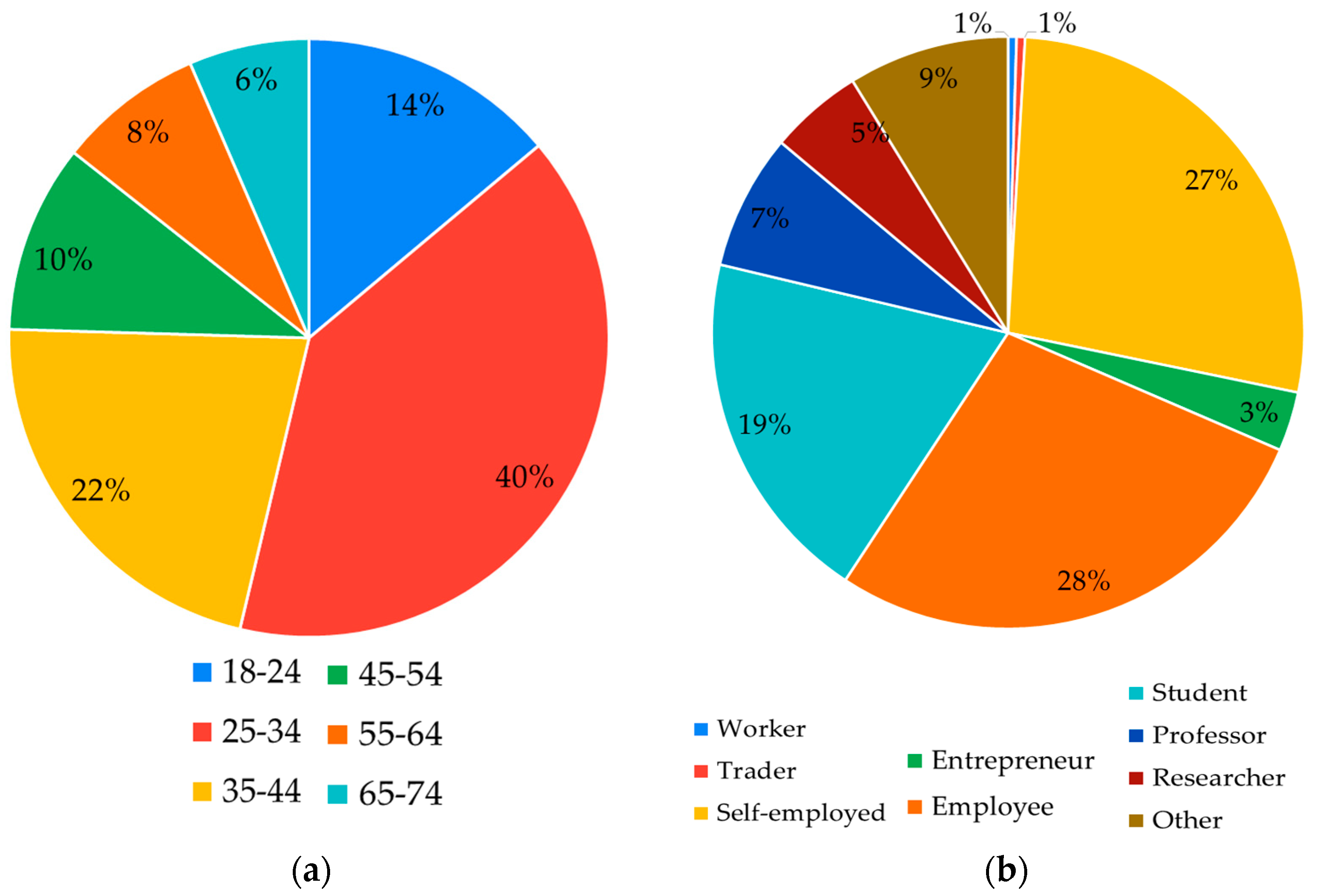
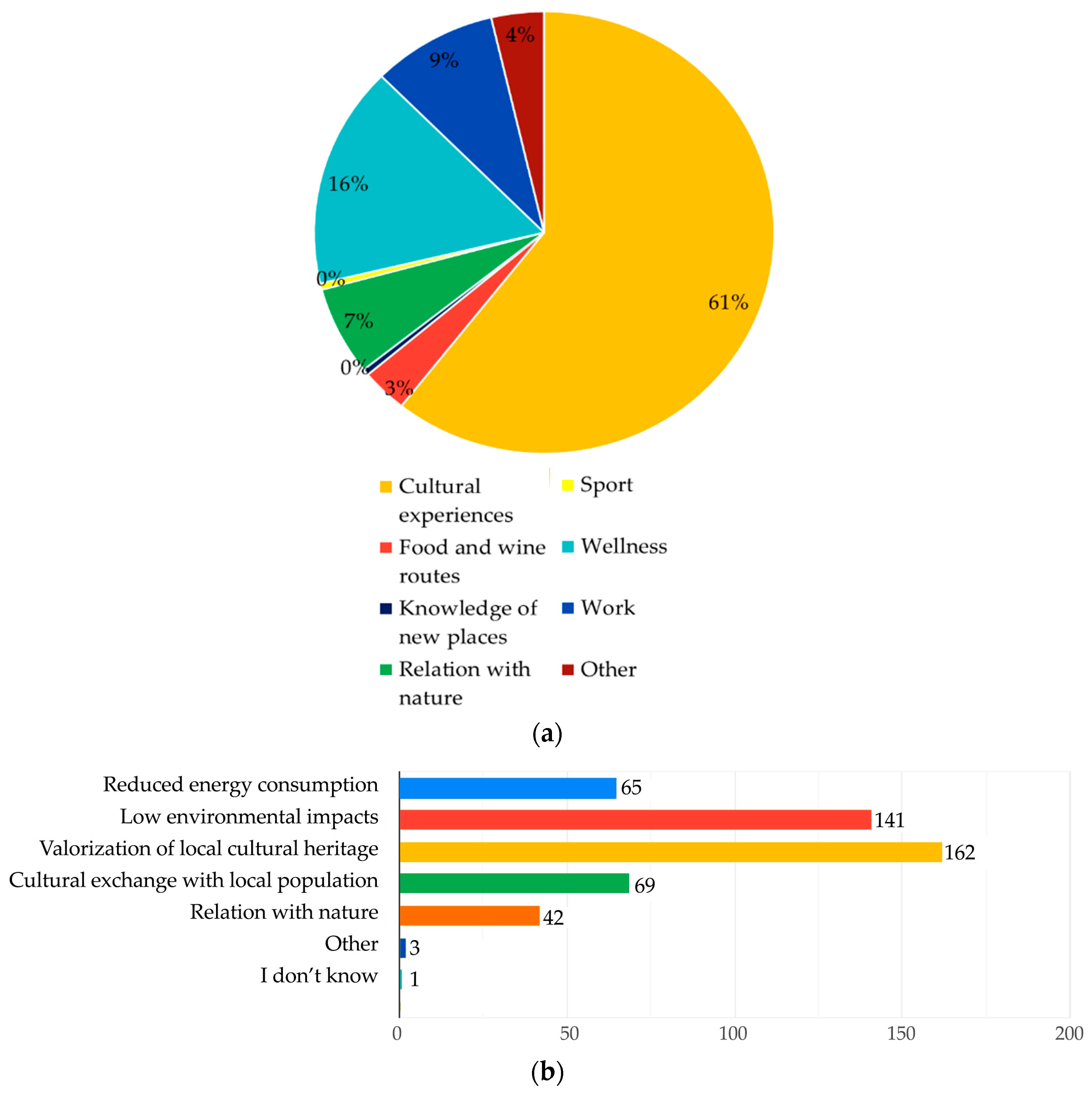
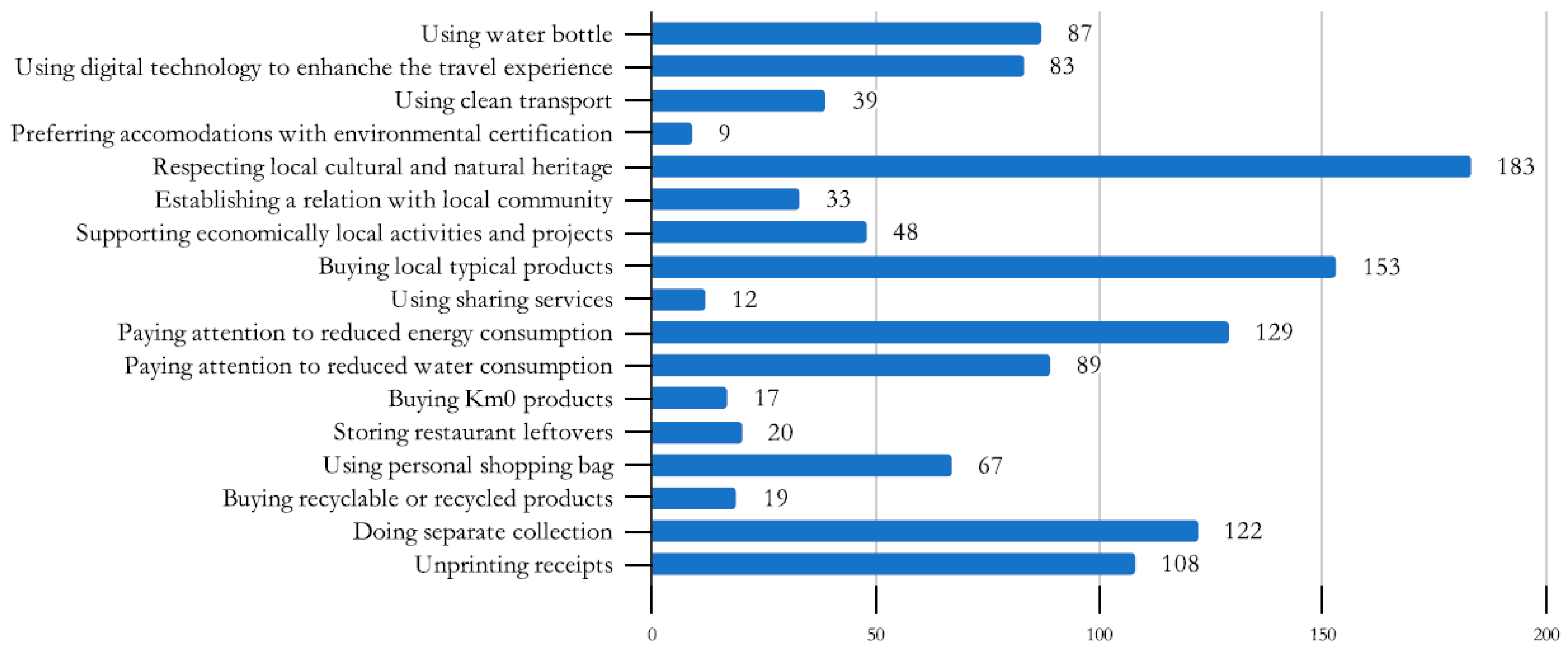
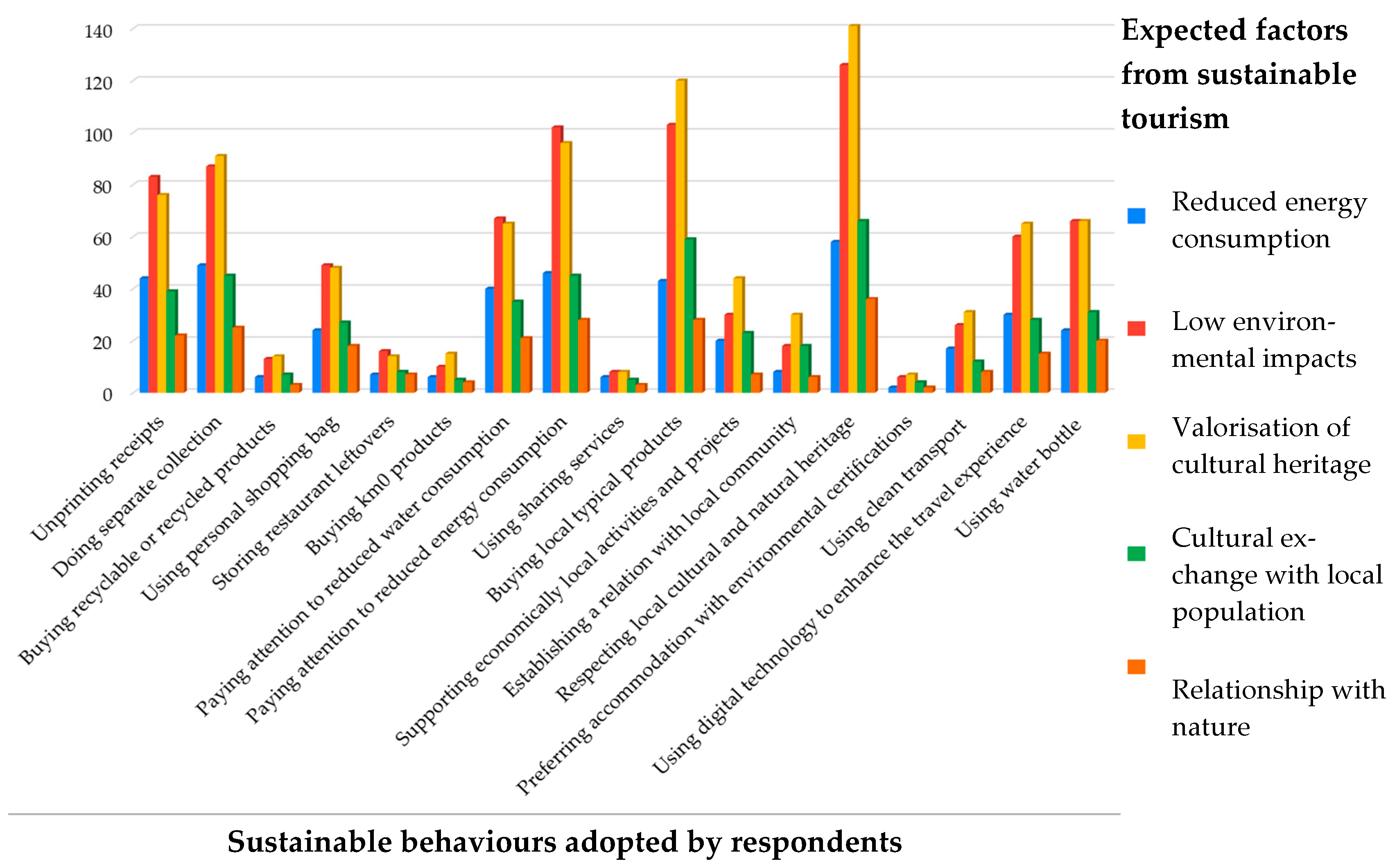
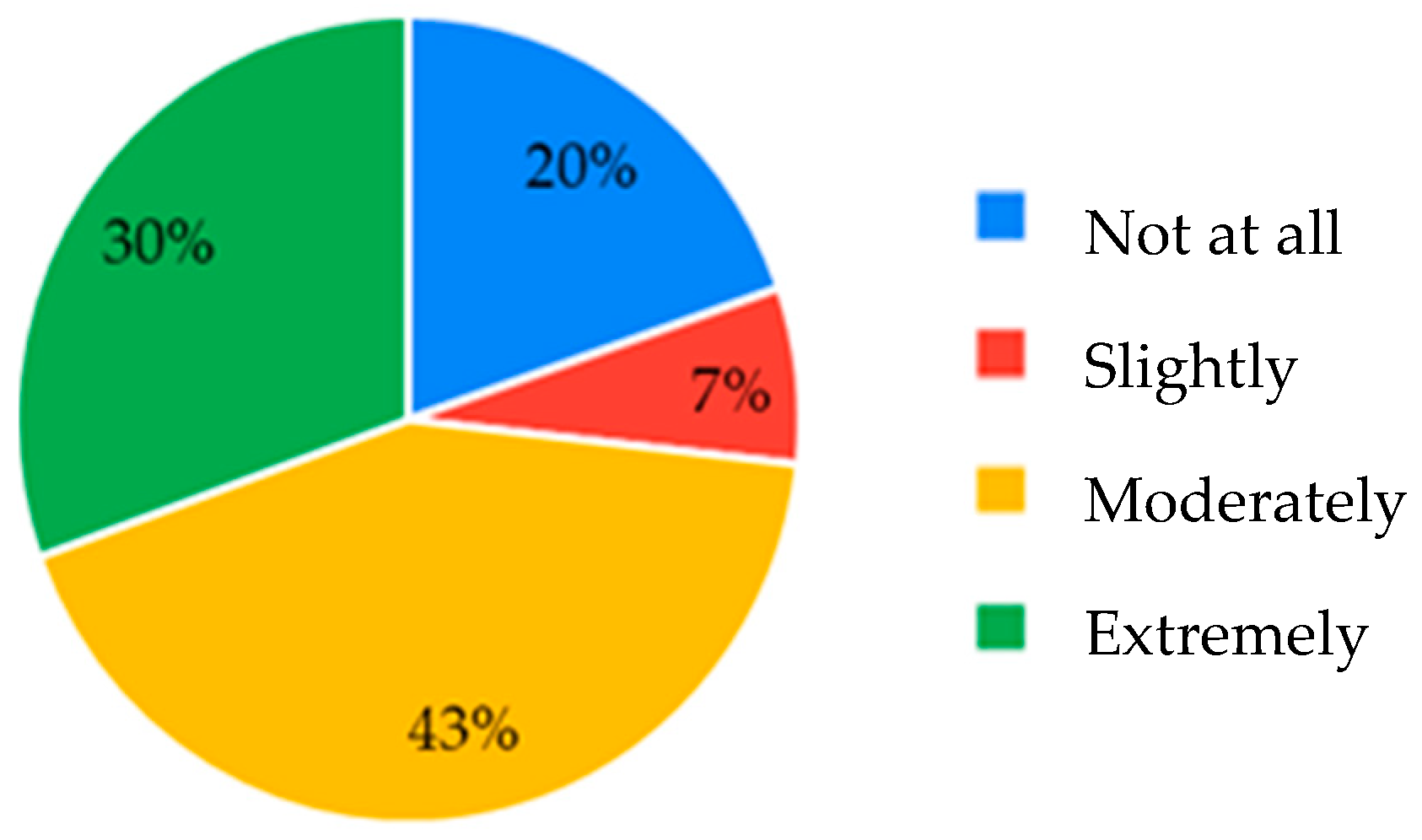
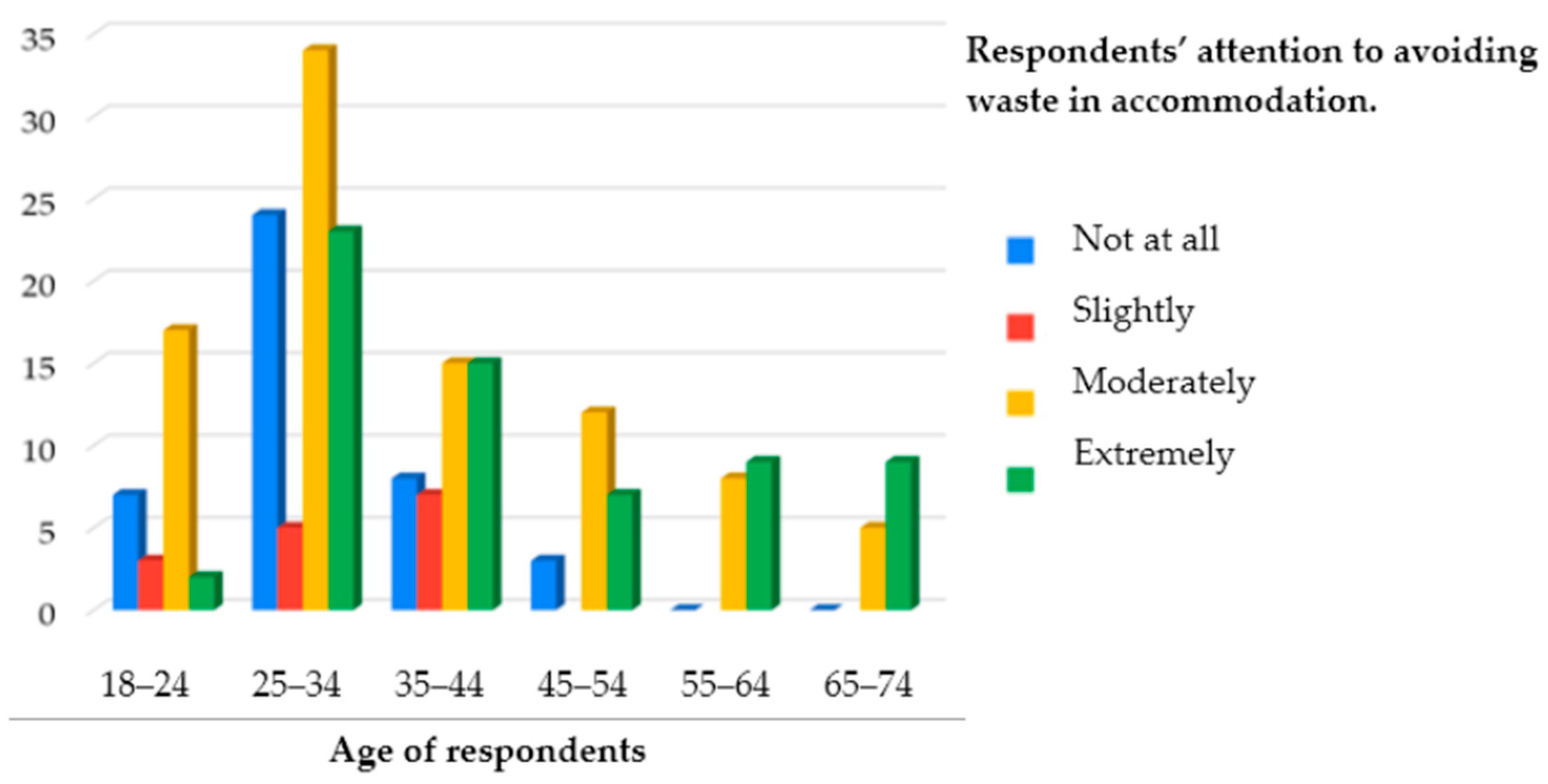


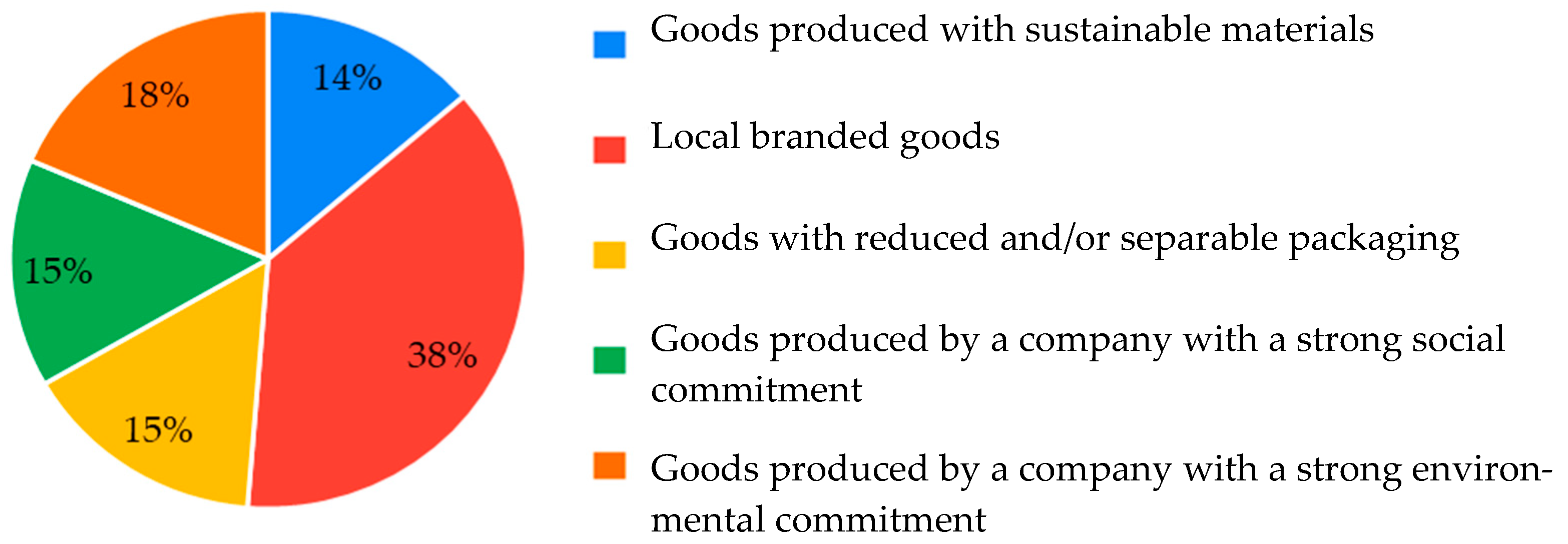

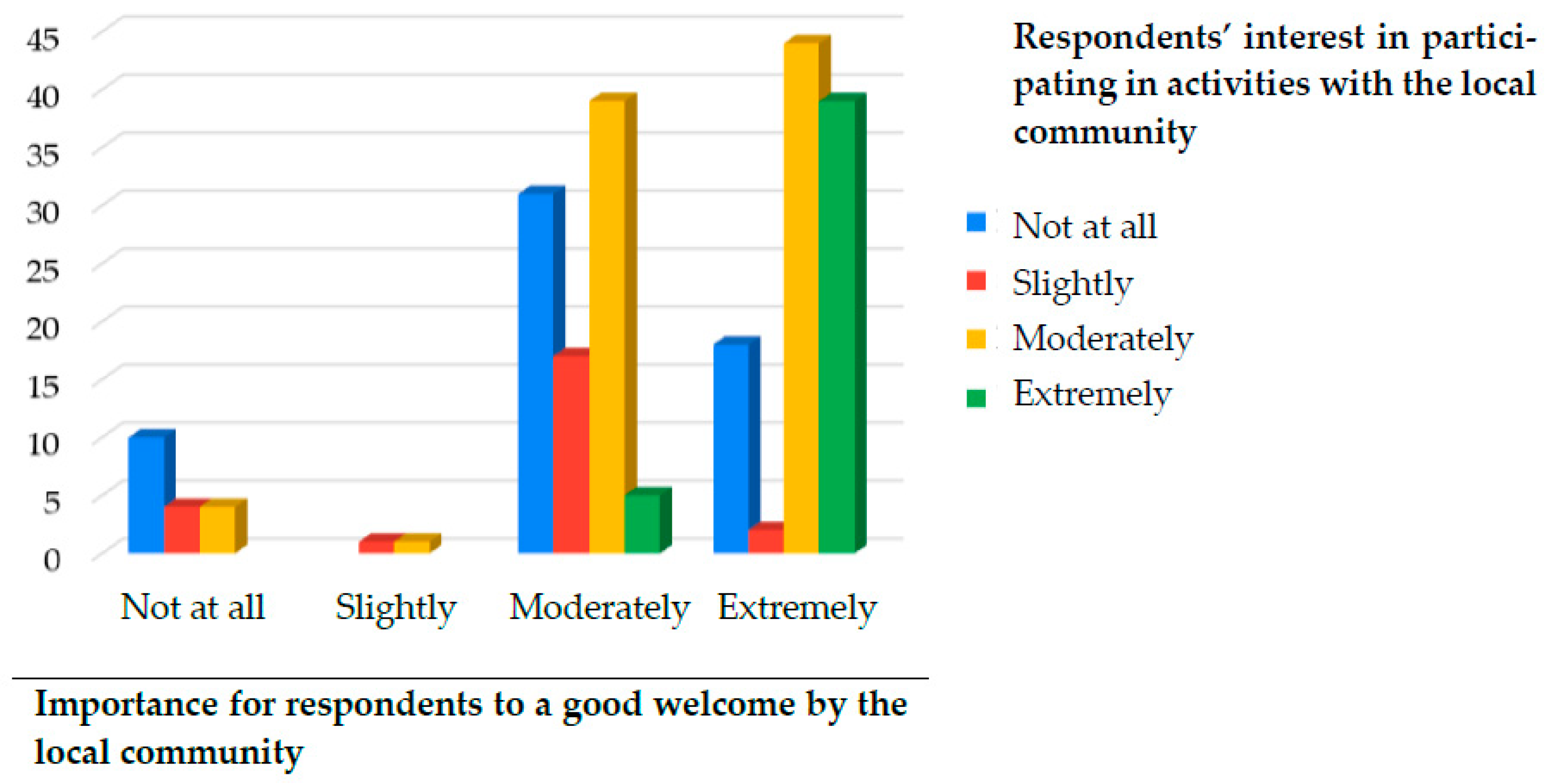
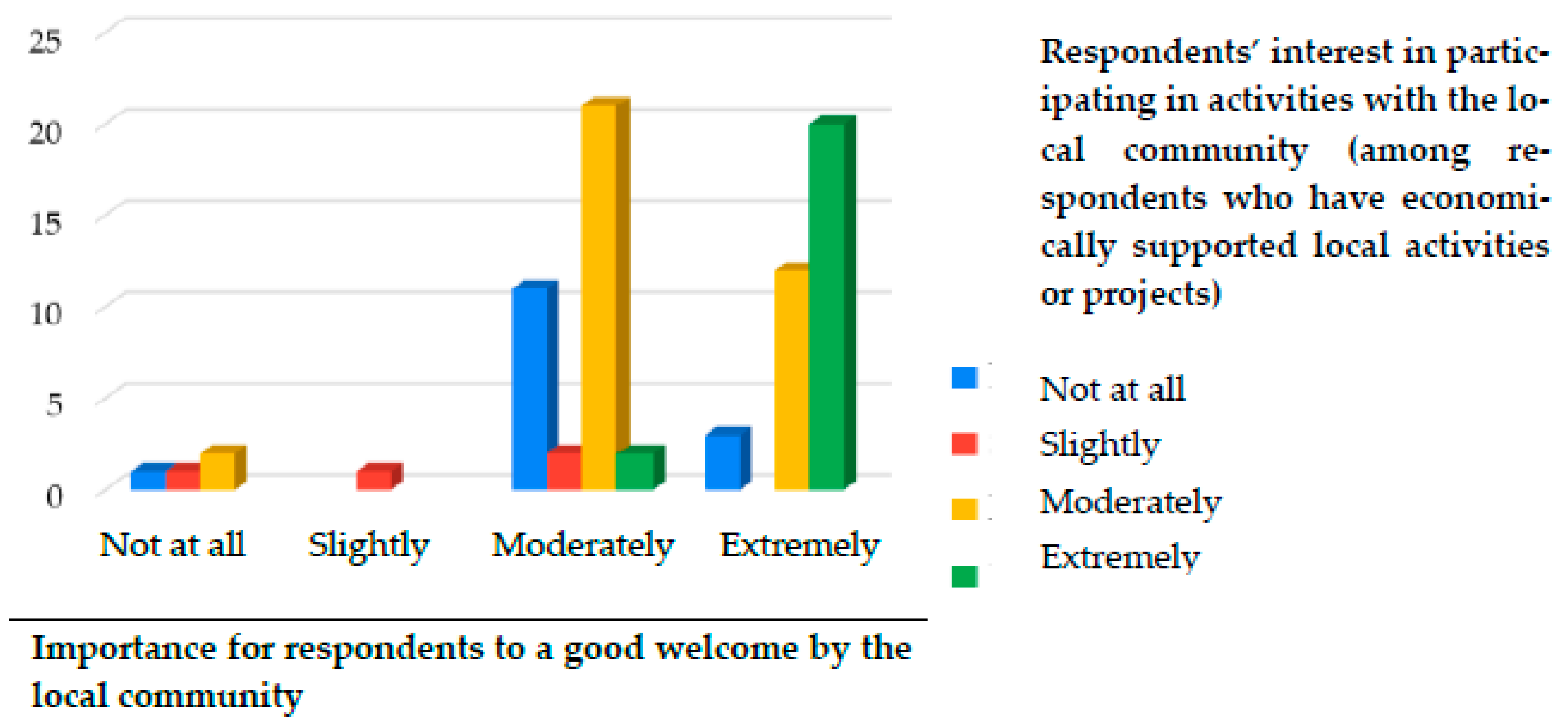
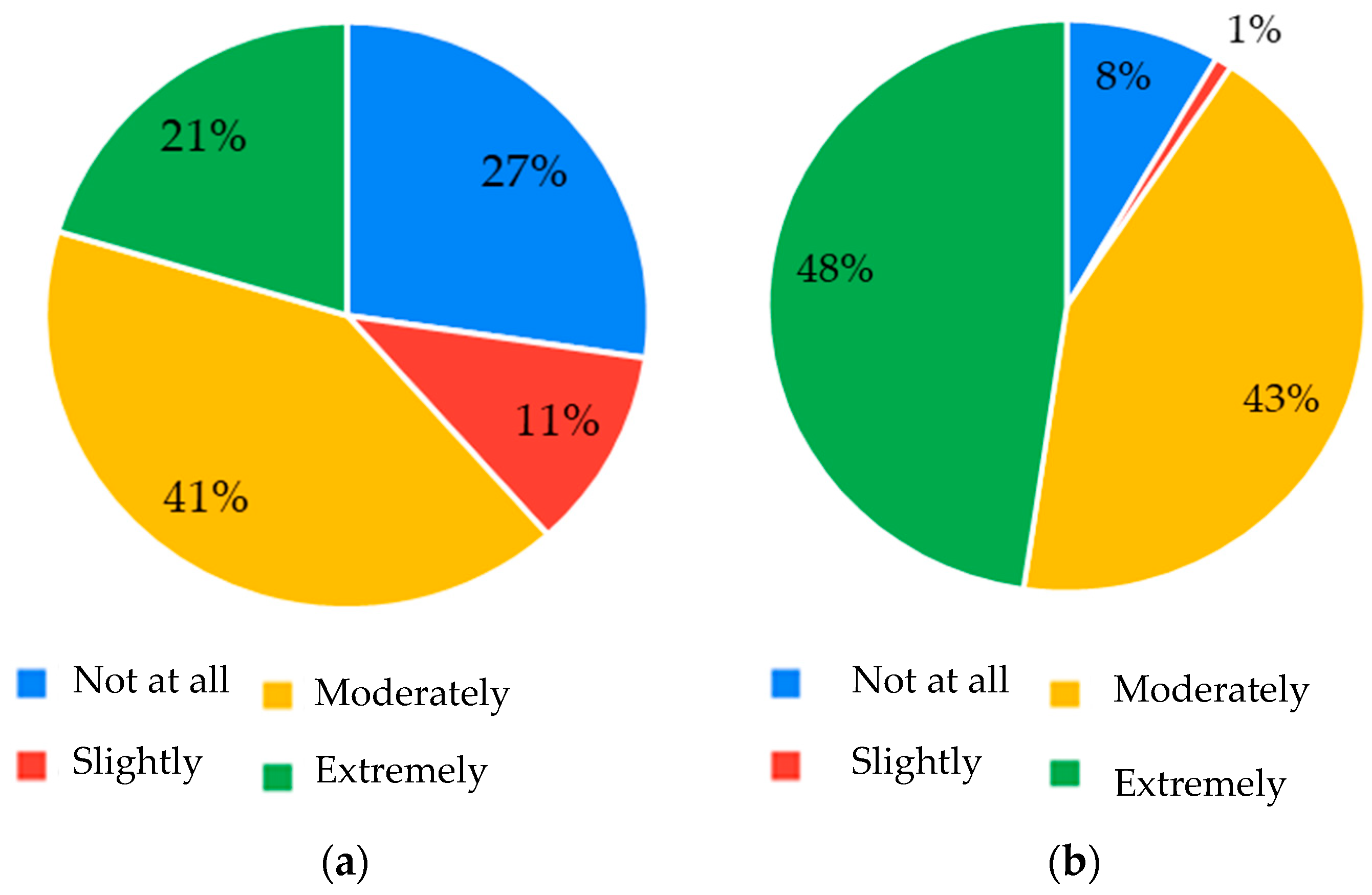
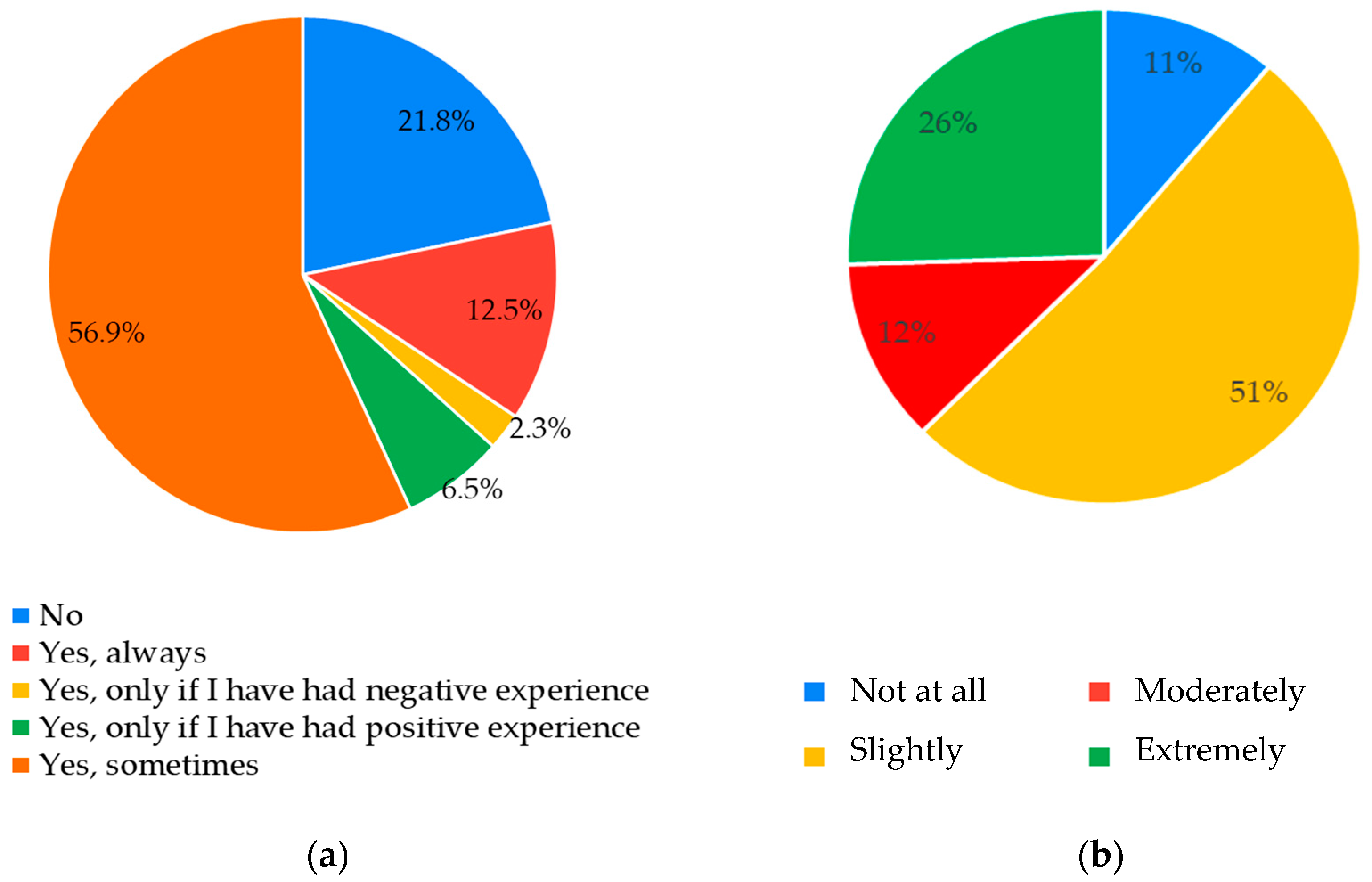
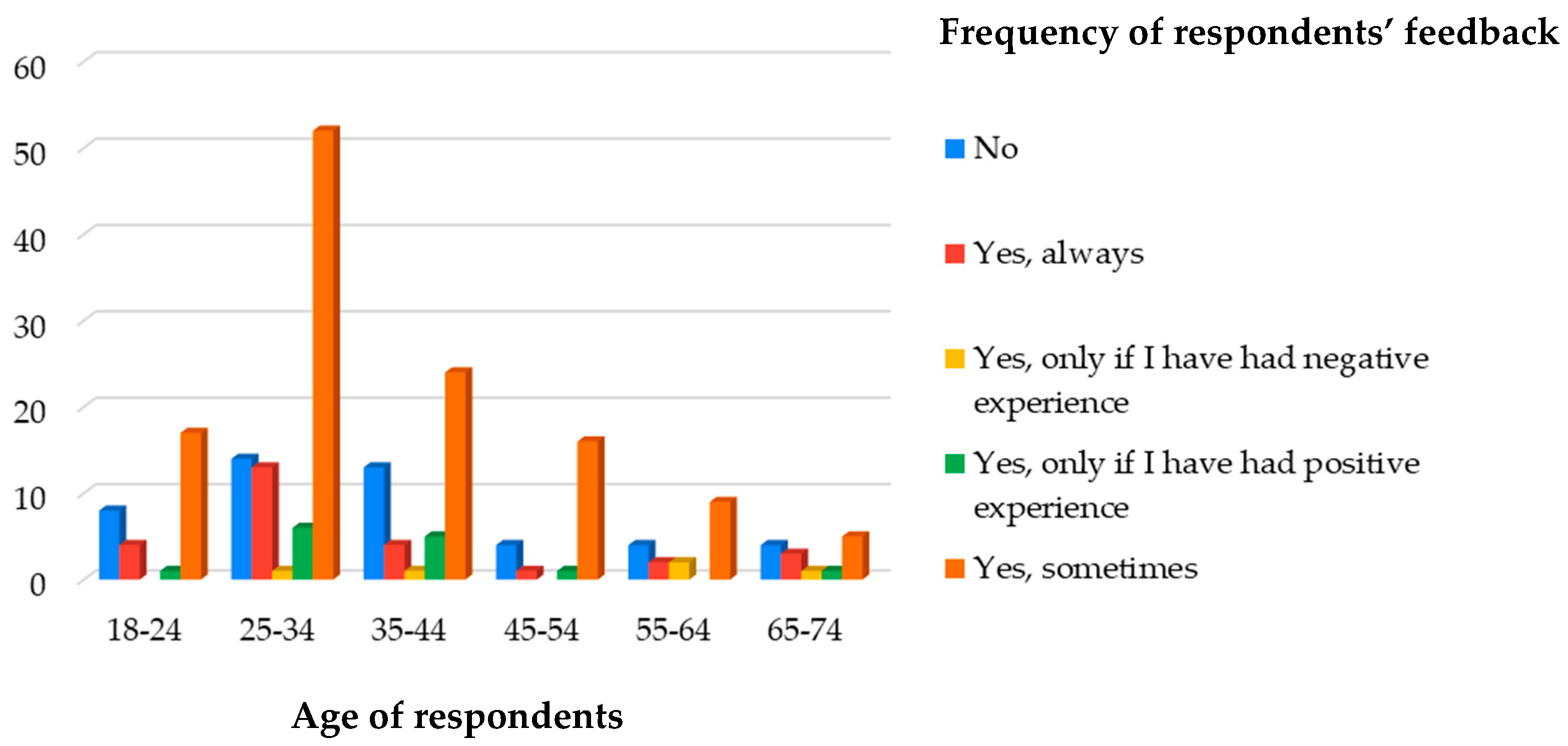

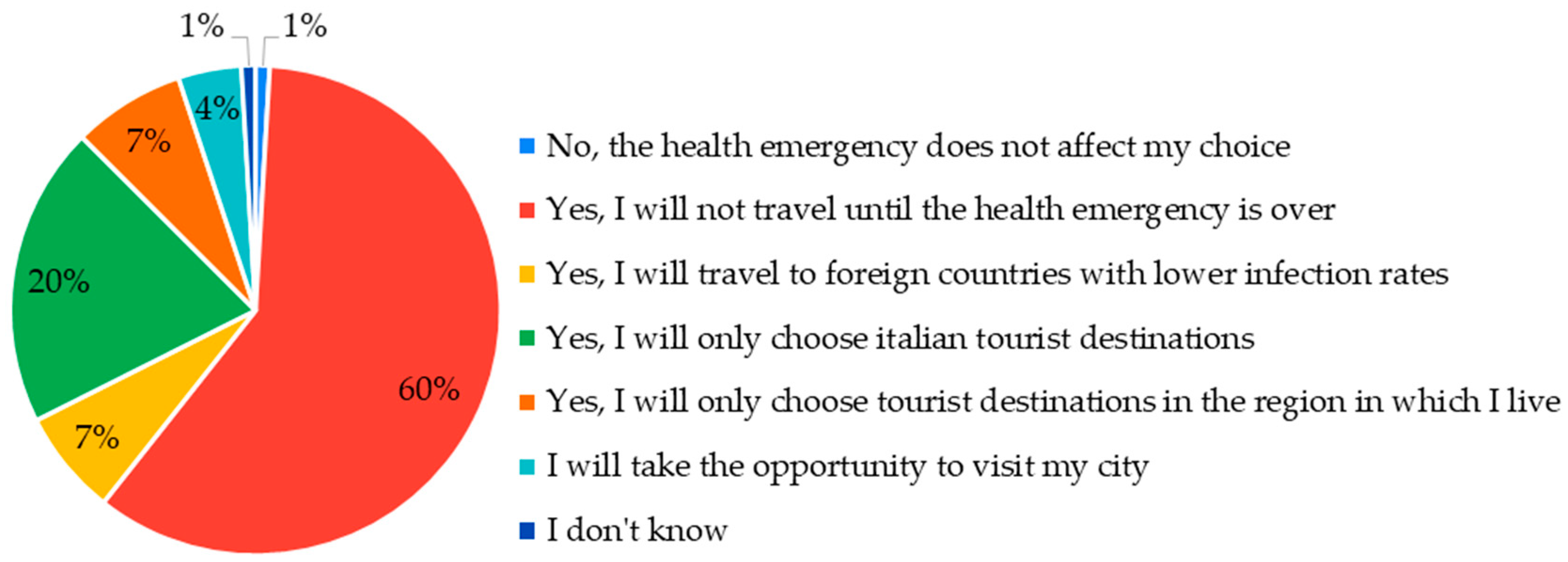
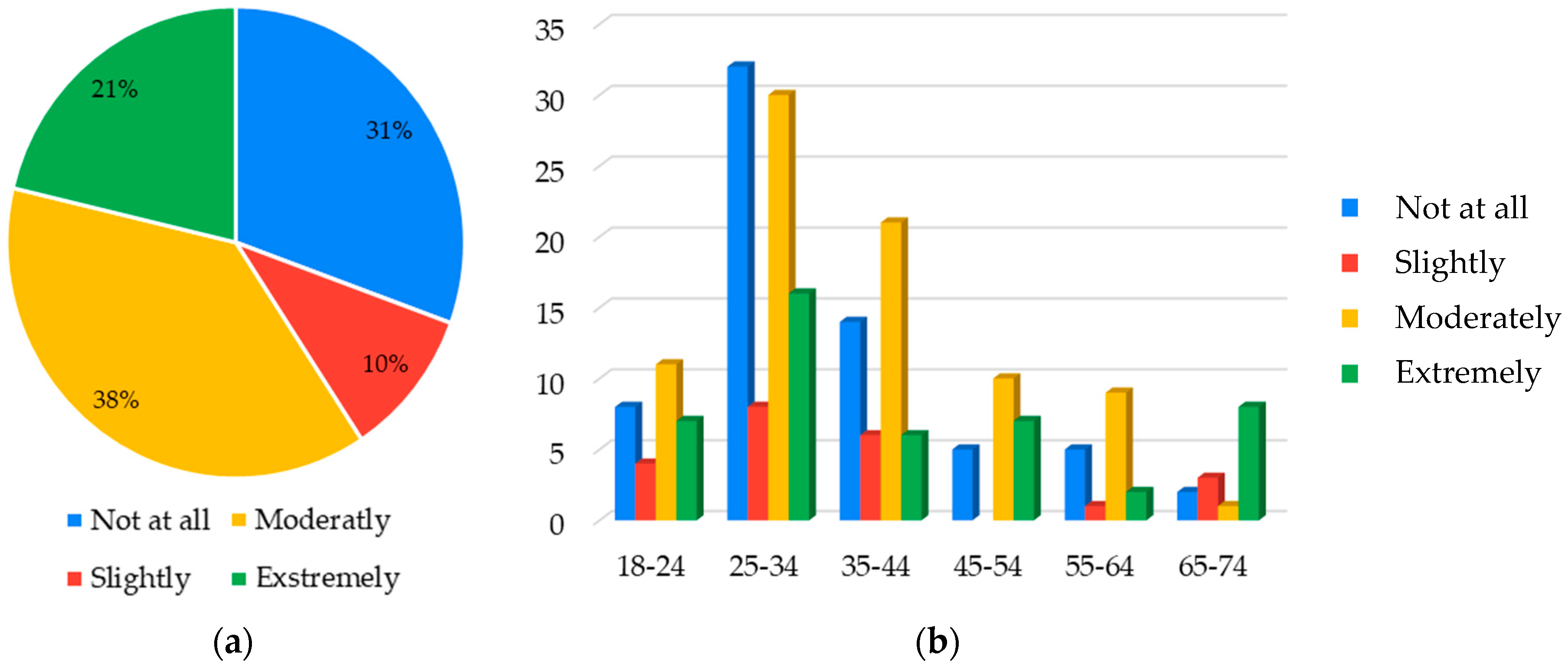

| Be a “Sustainable” Tourist | |
|---|---|
| Issue | Result |
| Respondents’ travel motivation | Cultural experience is the main reason for their trips, followed by wellness-related reasons, |
| Factors expected by respondents from sustainable tourism | Enhancing the local heritage (cultural, natural, food, wine, etc.) and reducing environmental impact. |
| Most frequent behaviours adopted by tourists during the travel |
|
| Relationship between factors that respondents attribute to sustainable tourism and the behaviour they actually adopt | Respondents who linked sustainable tourism to a reduction in environmental impacts:
|
| Attention paid to avoiding waste at the tourist facilities | Respondents who linked sustainable tourism to the enhancement of the local cultural heritage:
|
| The majority of respondents are “moderately” or “extremely” attentive in avoiding producing waste. | |
| Relationship between respondents’ attention to avoiding waste in accommodations and their age |
|
| Influence of the presence of sustainable services in the choice of the tourist facility | About 75% of respondents split between those for whom it was “moderately” important and “not at all” important. |
| Means of transport used in travel destination | The majority of respondents prefer public transport. The second most favoured mean of transport was walking. The minority of respondents consider the possibility of moving by car-sharing services. |
| Factors influencing the choice to purchase products during travel | The majority of respondents prefer goods identified with the destination’s brand. |
| Be an “Active and Responsible” Traveller | |
|---|---|
| Interest of travellers in looking for information about the local culture of the tourist destination | Before the trip, most respondents look for information about the local culture of the tourist destination to be more aware of the place they are going to visit. |
| Interest of respondents about information relating to preventive health measures to be taken before travel | Aspects related to health measures for prevention are particularly felt among the interviewees, as more than one-half of respondents ask about precautionary health measures that should be taken before travel. |
| Relationship between the importance attributed by travellers to a good welcome from the local community and interest in participating in activities with the local community of the tourist destination | A good welcome influences people’s readiness to actively participate in local activities. |
| Relationship between the importance of respondents to be well received by the local community and their interest in participating in activities led by the local community considering respondents who declare they have economically supported local activities or projects | There is a correlation between these three factors. Among those who said they had economically supported local activities/projects, the majority felt it was “extremely” important to have a good welcome from the local community and, at the same time, declared they were “moderately” interested in taking part in activities with the local community. |
| Respondents’ interest in participating in activities led by the local community | Slightly less than half of the respondents stated that they were “moderately” interested in participating in activities organised by the local community. |
| Importance attributed by respondents to a good welcome from the local community | Almost the entirety of the respondents considered a good welcome from the local community to be “extremely” important. |
| Frequency of respondents’ feedback | The results show that at the end of a trip, just over half of respondents give the feedback “sometimes”. |
| Degree of influence of other feedback on respondents’ travel choices | Half of the respondents were “slightly” influenced by feedback from other travellers. |
| Relationship between the age of respondents and the frequency of their feedback about tourist experience | The results show that young people (25–34 age group) give feedback much more than other categories, followed by the 35–44 age group. In general, also considering the other age groups, the tourists who have a positive experience leave reviews more than tourists who have a negative experience. |
| Relationship between the frequency of respondents’ feedback about their tourist experience and the frequency of the use of social media to share it | Half of the respondents who provided feedback “sometimes” use social media “extremely” to share their experiences. Similarly, among respondents who “always” give feedback, the largest percentage “extremely” share the tourist experience on social media. |
| Tourism and COVID-19 | |
|---|---|
| Influence of COVID-19 on the choice of tourist destination | The health emergency due to COVID-19 affects the choice of tourist destinations for almost all respondents. Among respondents who declared that COVID-19 influenced their choices, 59.7% would not travel until the health emergency was over. |
| Tourists’ perceptions of virtual tourism | The majority of respondents believe that virtual tourism restricts many feelings and perceptions. On the other hand, a small percentage of them believe that virtual tourism can represent a valid alternative to traditional tourism, but only temporarily. |
| Influence of COVID-19 on the respondents’ sensitivity to environmental issues | Most respondents are more sensitive to environmental issues after the pandemic, although there is not much difference between percentages of those who are “extremely” influenced and those who are “not at all” influenced. |
| Relationship between influence of COVID-19 on respondents’ sensitivity to environmental issues and their age | Only in the 65–74 age group did most respondents state that the pandemic has “extremely” affected their sensitivity to environmental issues. In the other age groups, the “moderate” influence was always predominant, except in the case of the 25–34 age group, in which the percentages of respondents “not at all” and “moderately” affected by the pandemic are almost the same. |
| Relationship between the importance attributed to the “cost of the trip” and the pre-COVID-19 period and post-COVID-19 period | The results show that the importance attributed by the respondents to the cost of the trip significantly changed, as many more people “extremely” paid attention after COVID-19. |
| Relationship between the importance attributed to “health” and the pre-COVID-19 period and post-COVID-19 period | The analysis shows that in the pre-COVID-19 period health security was perceived as a priority travel choice for a small percentage of the respondents. After the first lockdown, however, this percentage tripled, as many of those who had previously answered “slightly” and “moderately” changed their opinion, stating this issue to be “extremely” important. |
Publisher’s Note: MDPI stays neutral with regard to jurisdictional claims in published maps and institutional affiliations. |
© 2022 by the authors. Licensee MDPI, Basel, Switzerland. This article is an open access article distributed under the terms and conditions of the Creative Commons Attribution (CC BY) license (https://creativecommons.org/licenses/by/4.0/).
Share and Cite
Bosone, M.; Nocca, F. Human Circular Tourism as the Tourism of Tomorrow: The Role of Travellers in Achieving a More Sustainable and Circular Tourism. Sustainability 2022, 14, 12218. https://doi.org/10.3390/su141912218
Bosone M, Nocca F. Human Circular Tourism as the Tourism of Tomorrow: The Role of Travellers in Achieving a More Sustainable and Circular Tourism. Sustainability. 2022; 14(19):12218. https://doi.org/10.3390/su141912218
Chicago/Turabian StyleBosone, Martina, and Francesca Nocca. 2022. "Human Circular Tourism as the Tourism of Tomorrow: The Role of Travellers in Achieving a More Sustainable and Circular Tourism" Sustainability 14, no. 19: 12218. https://doi.org/10.3390/su141912218
APA StyleBosone, M., & Nocca, F. (2022). Human Circular Tourism as the Tourism of Tomorrow: The Role of Travellers in Achieving a More Sustainable and Circular Tourism. Sustainability, 14(19), 12218. https://doi.org/10.3390/su141912218








